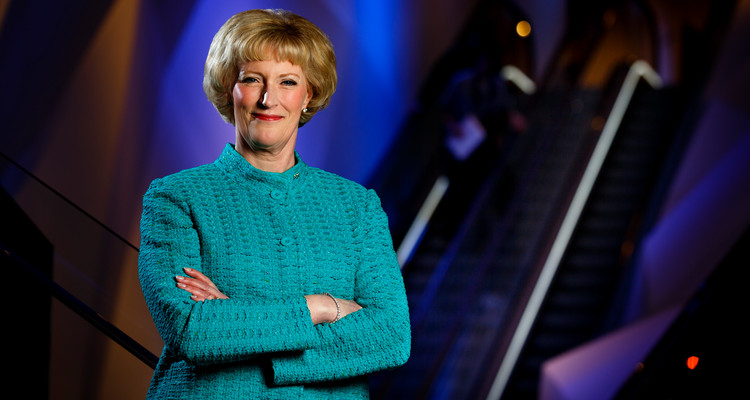When Solome Tibebu ’12 started her entrepreneurship studies at St. Thomas’ Opus College of Business, she already had been running her own business for two years. By the time she graduated, she had launched another venture.
At 16, Tibebu created Anxiety in Teens, an online mental health magazine and resource site that offers stories of hope and health to youth and their families.
In middle school and high school, Tibebu suffered from a severe anxiety disorder, which included panic attacks and obsessive-compulsive behavior. She said she saw four therapists.
“They would give me notes with very challenging exercises I was supposed to do on my own,” Tibebu said. “There were many lost opportunities for improvement in between appointments. And the therapists didn’t follow up. What kind of service is that?”
She looked for online resources and found none, so she started her own – Anxiety in Teens. “It was an outlet to help myself and others,” she said.
As Anxiety in Teens expanded, Tibebu didn’t hesitate to seek assistance. Her first week at St. Thomas, she introduced herself to Barbara Gorski, Ph.D., who directs Learning Through Service (BUSN200), a required program for business majors at the Opus College of Business. Tibebu asked Gorski if some of the BUSN 200 students could intern for Anxiety in Teens.
Gorski said she was impressed with Tibebu’s business plan and vision. “Solome is pretty amazing,” said Gorski, who met regularly with her. “She has high expectations, but she’s gentle with people.”
Over the years, Anxiety in Teens has had more than 45 BUSN200 interns. “She both demands and commands responsibility of our students,” Gorski said.
Tibebu said she has been moved by the transformations she has seen in some of the interns who didn’t know where to turn for help with their own mental health issues. Tibebu’s frankness about her journey has helped the interns open up to her and seek help.
“My anxiety is nothing like it was before,” Tibebu said. “Being an entrepreneur has made me do things out of my comfort zone to become the person I want to be.”
The knowledge she gained from starting Anxiety in Teens led to her next venture – Cognific, a behavioral health care software tool for providers who are largely outcome-based.
“One day Solome came in my office and said, ‘I’m launching a new idea – Cognific,’” Gorski recalled. “When Solome has a vision, she goes after it and she makes it work.”
“Cognific acts as an extension of mental health care providers after office hours,” Tibebu said. “It gets to more meaningful therapy for the patients and increases the capacity for billable hours for the clinician.”
Dan Rebek, clinical director of Cognific, explained, “Research shows that people don’t necessarily need rewards – they need feedback. The client can record his or her progress or struggles so that the clinician can see what’s been happening since their last session. Health care providers can review trends and analytics of a client’s homework, closing the communication gap between providers and patients.”
Skilled in business but not in psychotherapy or information technology, Tibebu found the resources she needed to start Cognific. Rebek, a psychologist, knew that Cognific was the first-place division winner at the Minnesota Cup competition 2012 for high growth startups, so he was excited to get on board.
“I thought, ‘Wow, this young person has found a missing piece in the realm of psychotherapy homework. I really think this could help clients and clinicians,’” Rebek said.
“Solome is one of the most courageous persons I’ve met,” he added. “She is willing to reach out and talk to anyone who can help move Cognific forward, including CEOs. Her team of volunteer advisers is really impressive.”
Also impressive is Tibebu. For her Cognific business plan, she received a $10,000 first-place scholarship through the Fowler Business Concept Challenge through the Morrison Center for Entrepreneurship at St. Thomas. She is the recipient of the National Federation of Families for Children’s Mental Health Youth MOVE National Dare to Dream Award, among other awards.
Although Tibebu doesn’t let obstacles get in her way, she did need capital to start Cognific. “The Norris Institute has been a huge help,” Tibebu said. “Norris gave us seed funding. To build a product, I had to get the right people in line – developers and health providers. This isn’t a business you can just do in your garage.”
A believer in supporting other entrepreneurs, Tibebu co-founded the networking group Healthcare.MN earlier this year.
When asked if she envisions any more startups in her future, she replied, “I’m pretty busy as it is!”
Read more from B. Magazine.







